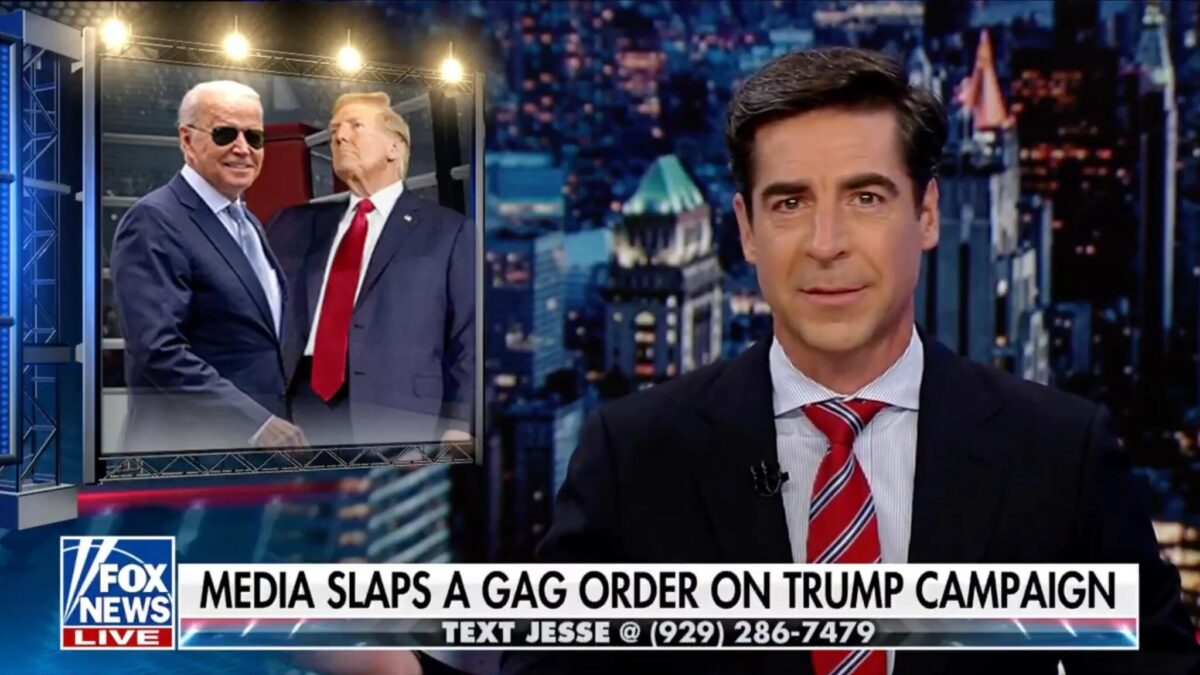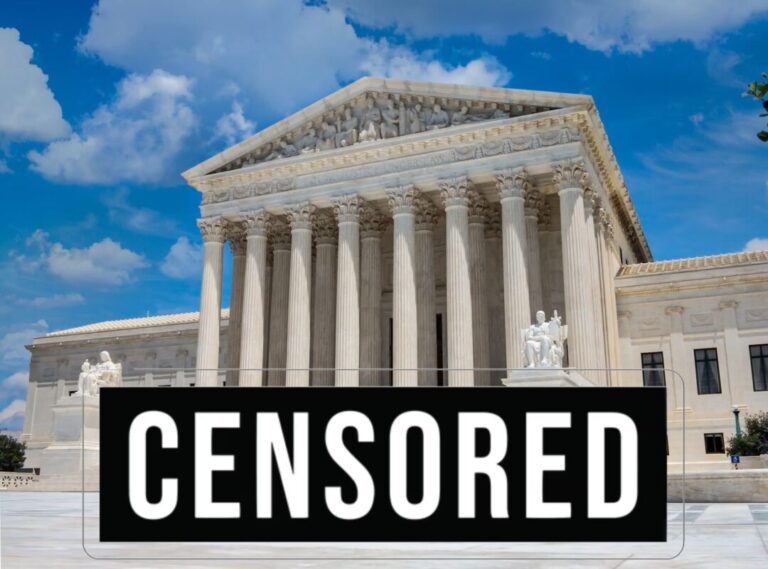In a surprising turn of events, reports have emerged that CNN has imposed a “gag order” on the Trump campaign just days before the upcoming presidential debate scheduled to be hosted by the network. This development has sparked outrage and concerns over the fairness and impartiality of the upcoming debate proceedings.
According to Fox News host Jesse Watters, the Trump campaign has been prohibited from making any comments or statements on the CNN platform in the lead-up to the debate. Watters expressed his dismay, questioning the network’s motives and suggesting a double standard in the treatment of the two presidential candidates.
CNN just slapped a gag order on The Trump campaign— days before the CNN debate.
We knew Trump’s mic would be muted during the debate, but we didn’t know his campaign’s mic would be muted before it. pic.twitter.com/8S6XlZ0VLB
— Jesse Watters (@JesseBWatters) June 25, 2024
Podcaster Tim Pool also weighed in on the issue, asserting that CNN is threatening any social media channels that intend to provide commentary or fact-checking during the debate, claiming that such actions are a violation of fair use principles.
CNN is now threatening any social channels that provide commentary on the debate stating they will not allow the use outside of CNN
Commentary on a presidential debate is the epitome of fair use and we fully intend to provide insight and real time fact checking Thursday LIVE
— Tim Pool (@Timcast) June 24, 2024
Its fair use
Other channels have already won in this regard
CNN is full of shit https://t.co/HIlYtQVLJV
— Tim Pool (@Timcast) June 25, 2024
These revelations come on the heels of a recent incident where CNN’s Kasie Hunt abruptly cut off an interview with Trump spokeswoman Karoline Leavitt after she raised concerns about the debate moderator’s history of anti-Trump rhetoric. Leavitt accused the network of silencing the Trump campaign and not providing a fair platform for their perspective.
The Impending Presidential Debate
The highly anticipated first presidential debate between President Donald Trump and former Vice President Joe Biden is set to take place on Thursday, September 29th, at 9 PM ET. The debate will be hosted by CNN in Atlanta, with Jake Tapper and Dana Bash serving as the moderators.
Both Tapper and Bash are known for their critical views and coverage of the Trump administration, raising concerns among the president’s supporters about the potential for biased treatment during the debate. The Trump campaign has long expressed concerns about the fairness of the debate process, and this latest development only serves to exacerbate those fears.
Accusations of Unfair Treatment
The Trump campaign has accused CNN of not only gagging their ability to respond to the network’s coverage but also of potentially “feeding Biden tips” during the debate. This allegation suggests a perceived double standard in the way the two candidates are being treated by the media.
Karoline Leavitt, a spokeswoman for the Trump campaign, has been particularly vocal in her criticism of CNN’s actions. Following her abrupt interview cut-off, Leavitt accused the network of silencing the Trump campaign for bringing up the debate moderator’s history of anti-Trump rhetoric.
Concerns over Debate Fairness
The recent developments have further fueled concerns among Trump supporters and the wider public about the fairness and impartiality of the upcoming presidential debate. Many are questioning whether the Trump campaign will be given a fair and balanced platform to present their views and counter any potential bias from the moderators.
The notion of a “gag order” imposed by CNN on the Trump campaign has raised eyebrows, with some observers suggesting that it could be a tactic to limit the campaign’s ability to respond to any perceived unfair treatment during the debate.
Potential Impact on Debate Viewership and Credibility
The controversy surrounding the CNN debate has the potential to impact both the viewership and the credibility of the event. If the public perceives the debate as being unfairly tilted towards one candidate, it could lead to a decline in viewership, as some may choose to boycott the event altogether.
Moreover, the allegations of bias and unfair treatment could further erode public trust in the media’s ability to provide impartial and objective coverage of the electoral process. This could have lasting consequences for the credibility of the debate and the overall integrity of the electoral system.
Calls for Transparency and Accountability
In the wake of these developments, there have been calls for greater transparency and accountability from both CNN and the debate organizers. Supporters of the Trump campaign are demanding that the network provide a clear explanation for the alleged “gag order” and ensure that both candidates are given equal opportunities to express their views.
Additionally, there are calls for independent oversight or fact-checking mechanisms to be implemented during the debate to ensure that the proceedings are fair and balanced. This could involve the participation of non-partisan organizations or the inclusion of real-time fact-checking displays during the broadcast.
Potential Legal Challenges
Given the gravity of the allegations and the potential impact on the electoral process, the Trump campaign may consider pursuing legal action against CNN or the debate organizers. Such a move could further escalate the tensions and draw even more attention to the perceived unfairness of the debate.
Legal experts suggest that the Trump campaign could potentially argue that the alleged “gag order” and other actions by CNN constitute a violation of their free speech rights or an attempt to unfairly influence the electoral outcome. However, the success of any such legal challenges remains to be seen.
Implications for the Broader Media Landscape
The controversy surrounding the CNN debate extends beyond the immediate context of the presidential election. It raises broader questions about the role of the media in the democratic process and the need for greater accountability and transparency in their coverage of political events.
This incident could potentially have far-reaching implications for the media landscape, as it may further erode public trust in mainstream news sources and fuel the ongoing debate about media bias and the need for more balanced and objective reporting.
Calls for Voter Engagement and Informed Decision-Making
Amid the controversy, it is crucial that voters remain engaged and make informed decisions about the candidates and the electoral process. Regardless of one’s political affiliation, it is essential to critically evaluate the information provided by various media sources and to seek out multiple perspectives before forming opinions.
Voters should be encouraged to fact-check claims, seek out authoritative and non-partisan sources of information, and actively participate in the democratic process by exercising their right to vote. Only through an informed and engaged electorate can the integrity of the electoral system be maintained.




Leave a Comment